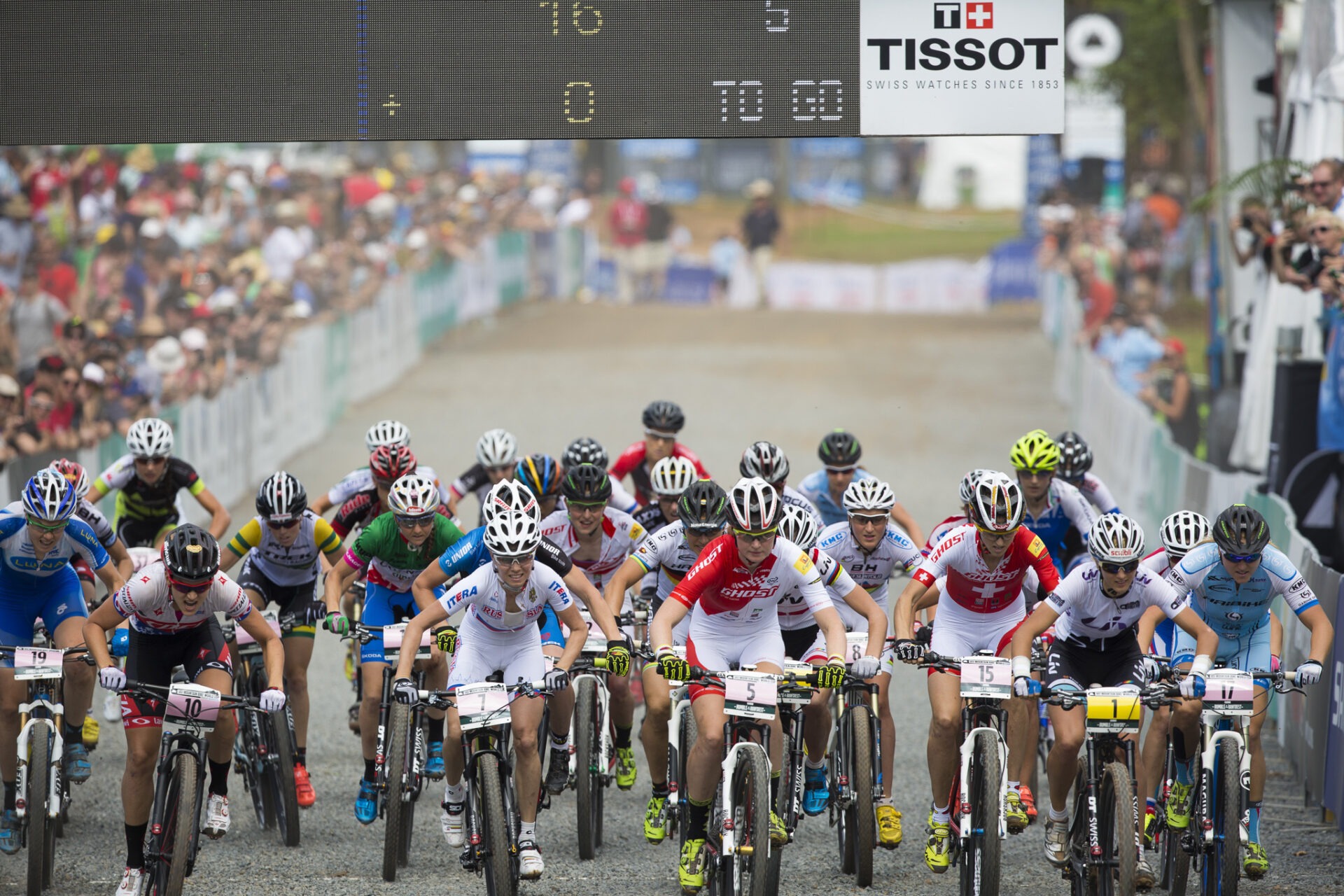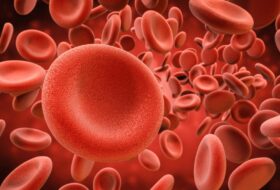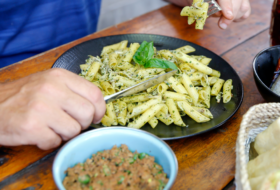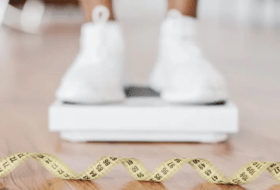What to eat around competition varies from sport to sport. This is a general overview. For competition nutrition information tailored to your specific sport check out our knowledge hub.
Before Competition
The first rule of competition nutrition is to start well-fuelled and hydrated. Each athlete is different but as a general rule your pre-competition meal should be approximately 3-4 hours before you start. This meal should be high in carbohydrate to top up your fuel tank and include some fluid, approximately 500 mL (16 oz). Having a small amount of protein at this meal can help alleviate hunger during your game or event as well.
Some great pre-competition meal ideas include:
- Porridge with banana and honey
- Eggs and baked beans on toast
- Tomato based pasta dish
- Lean meat and salad wrap
- Chicken stir-fry on rice
Many athletes will also benefit from a smaller snack 1-2 hours prior to competition. This snack should also be high in carbohydrate, but lower in fat and fibre to ensure it is quickly and easily digested.
Some great pre-competition snack ideas include:
- Honey or jam sandwich
- Banana on toast
- Hummus on rice cakes
- Lower fibre muesli bar and a piece of fruit
- Creamed rice and a cereal bar
- Lower fibre cereal with milk
- Spaghetti bun
If solids do not sit well with you before a game or event liquid options might be better tolerated. Think a carbohydrate rich smoothie or soup for a pre-competition meal topped up with sports drink, liquid breakfast drinks or fruit juice leading up to your game or event.
Over the 3-4 hours leading up to competition keep the fluids up. The aim is to begin competition well hydrated as indicated by a pale yellow urine colour.
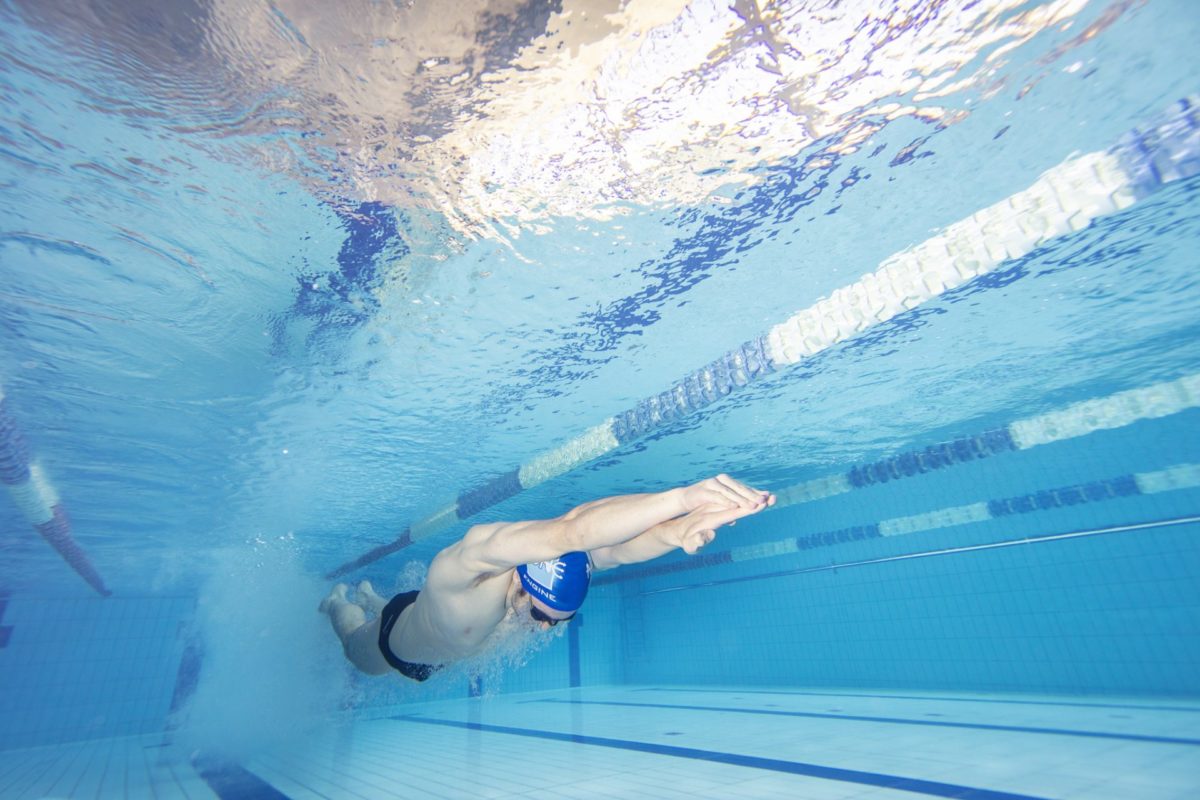
For longer duration sports such as long distance running, cycling and triathlon a higher carbohydrate intake over the 2-3 days leading up to a competition (carbohydrate loading) might be a beneficial strategy to implement. This strategy should always be trialed in training and done under the guidance of one of our experienced sports nutritionists or dietitians.
During Competition
Even with a full tank of fuel it would be hard to sustain high-intensity exercise for events or games lasting longer than 60 minutes without a top up. Depending on the nature of your sport this could be a quick carbohydrate hit at quarter or half time like with rugby or basketball. Alternatively it could involve fueling on the go if your sport is continuous like with marathon running or road cycling. Some great in competition carbohydrate options include banana, orange wedges, cereal or muesli bars, lollies, carbohydrate gels and sports drink. What is best for you will depend on the duration and intensity of your sport, as well as your individual tolerance. Oh and practicality of course – ever tried running while eating a muesli bar?
During competition we also lose fluid via sweat. If we lose too much we become dehydrated. Even at lower levels of dehydration (2-4%) there are negative impacts on performance with higher levels posing a risk to your health. Fluid needs are highly individual and can change day by day for an athlete depending on the environment (indoors vs outdoors, altitude, temperature and humidity). To prevent dehydration make the most of opportunities to drink. In team sports this could be substitutions, half time or injury breaks. For those competing in continuous sports consider how you can access fluids throughout – carrying your own vs aid stations.
When it comes to what to drink this depends on the individual athlete again as well as the nature of your competition. Most of the time water will suffice but sports or electrolyte drinks might be useful in certain situations – longer duration sports especially in the heat, tournament style competition or for athletes with higher energy needs or sweat losses.
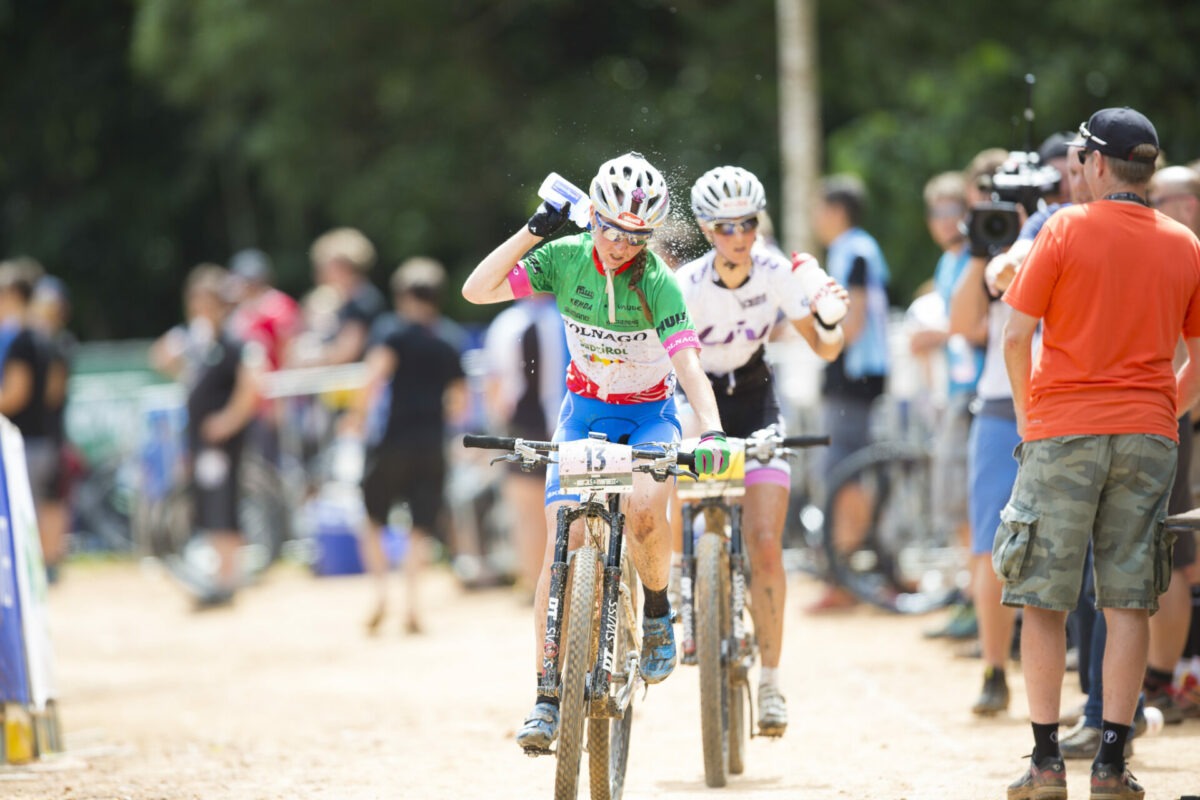
Tournaments
During tournament-style play it is important to keep fuel levels topped up over the day to prevent fatigue. Light, easy to digest carbohydrate rich snacks such as muesli or cereal bars, fresh fruit, creamed rice, flavoured milk, liquid breakfast drinks, fruit muffins and simple sandwiches are all good options for re-fuelling during a short turn around between games. For longer turn arounds more substantial meals or snacks can be consumed such as sushi, lean meat and salad wraps, smoothies, low fat pasta dishes or fruit and nut mix.
After Competition (aka Recovery Nutrition)
After a game or event fuel stores are depleted, muscles damage has likely occurred and you could be suffering from some level of dehydration. Nutrition plays an important role in helping you recover from all of these.
As soon as you finish competing start rehydrating. Even when you stop exercising your body continues to lose fluid so keep on top of your hydration for the rest of the day and into the evening. Aim to restore that pale yellow urine colour as soon as possible.
Within 30-45 minutes you want to be having a recovery snack. This should be carbohydrate rich to refuel your muscles and high in protein to support muscle repair.
Some great recovery snacks include:
- Yoghurt with fruit
- Fruit and nut mix
- Canned fish or tuna with crackers
- Eggs on toast
- Wholegrain cereal with milk
Many athletes really struggle with poor appetite after a hard game or event. This is where a liquid option (fruit smoothie, flavoured milk or liquid breakfast drink) can be a good idea
Follow this recovery snack up with a balanced meal within 2-3 hours. The focus here is still on those quality protein and carbohydrate foods for repair and refueling. As well as some healthy fats and colourful vegetables for rejuvenation. These foods are rich in anti-inflammatory and antioxidant compounds that help our bodies repair after a bout of intense exercise.
Try to avoid takeaways as nutrition quality aside you generally do not have control over the portion size. This makes it hard to ensure you are hitting all of your recovery nutrition targets. If you need a convenient option we love the supermarket takeaways – a hot chicken with salad or coleslaw and grainy buns. Alternatively filled pita pockets, wraps or subs, Turkish, Japanese, or design your own smoothie and salad bars are healthier takeaway options.
Alcohol should also be avoided especially if you have picked up an injury. It can distract you from your recovery nutrition goals, dehydrate you and impair muscle repair. Then there is the impact on sleep quality – sleep is such a vital process for recovery.
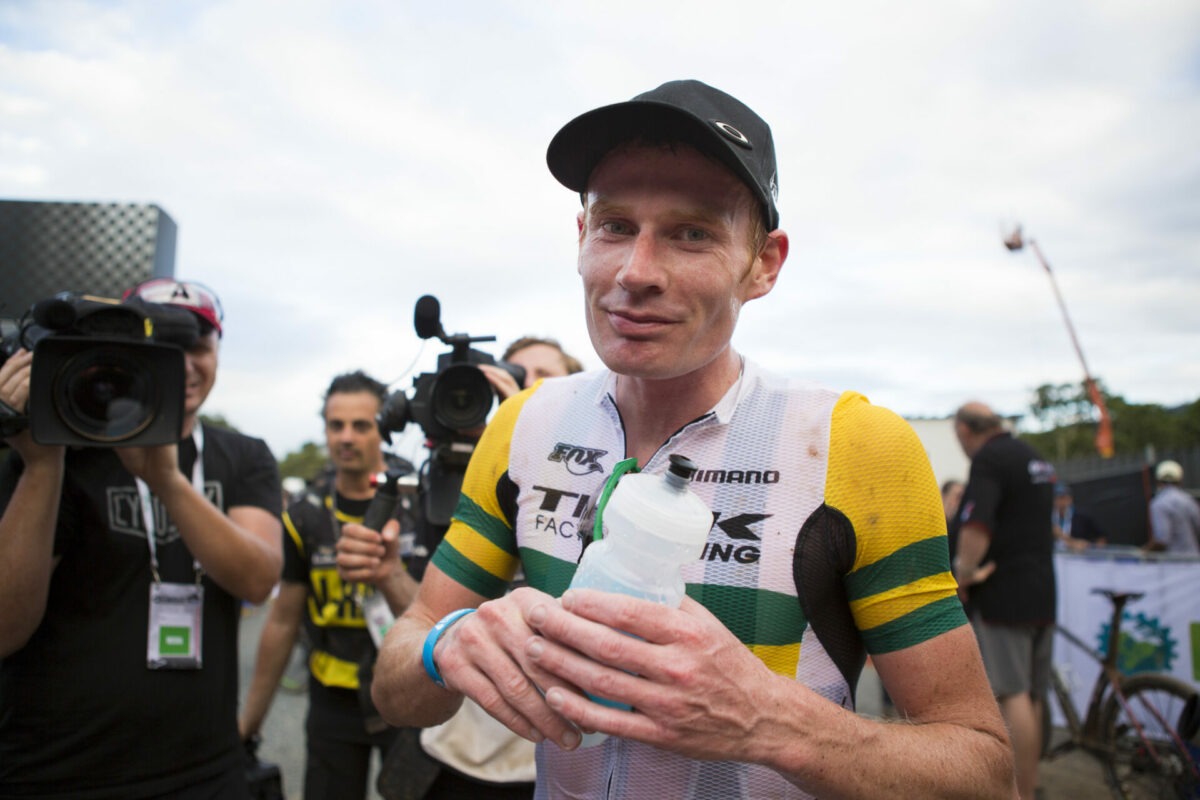
Suffer from cramp?
Two thirds of athletes experience muscle cramp at some stage during sport. Although there are a couple of theories around what causes cramp it is generally accepted that it is muscle fatigue. Therefore here are some strategies to help reduce the risk of cramp slowing you down.
- Train to the same intensity you compete. This reduces the risk of cramp as your muscles are conditioned to the intensity you compete.
- Fuel adequately. Well-fuelled muscles take longer to fatigue.
- Keep well hydrated. Although dehydration alone does not cause cramp it can contribute to early muscle fatigue.
For more on cramp click here.
If you would like to refine your competition nutrition to optimise your performance and get through your race, event or game without gut issues or cramp get in touch. We would love to help you reach your potential!

